The Essence of Rechargeable 9V Batteries
Rechargeable 9V batteries serve as a sustainable power source for devices needing a steady 9-volt supply, such as smoke alarms, handheld radios, and electronic measuring instruments. Capable of being recharged hundreds or thousands of times, these batteries offer an economical and eco-friendly substitute for single-use alternatives. They cater to a broad spectrum of users, from individual consumers to businesses requiring dependable energy.
These batteries operate on reversible electrochemical reactions. Charging them involves applying an electric current that prompts a chemical shift, transferring charge carriers from the negative electrode, typically lithium, to the positive electrode, often nickel-hydroxide. When in use, the process inverts, releasing stored energy as electricity. The rechargeability of these batteries plays a significant role in reducing waste and lessening the environmental toll of disposable batteries.
A principal advantage of rechargeable 9V batteries lies in their potential for cost savings over time. Despite a steeper upfront cost compared to single-use batteries, their long-term use translates into substantial financial savings from not having to purchase replacements frequently. For frequent users of 9-volt devices or those committed to reducing their environmental impact, rechargeable 9V batteries are a sensible choice.
Varieties of Rechargeable 9V Batteries
Diverse chemistries of rechargeable 9V batteries are available to address specific requirements and applications:
-
Lithium-Ion (Li-ion) Batteries: Favored for their high energy density, these batteries can hold more power for their size than other types. They are commonly used in personal electronics like cordless microphones and keyboards, as well as in healthcare devices.
-
Nickel-Metal Hydride (NiMH) Batteries: These batteries are a greener choice and are best used in scenarios where they are recharged before being fully depleted. They are typically found in handheld tools, children's toys, and some solar-powered outdoor lighting.
-
Lead-Acid Batteries: Although not as prevalent in this size due to their heft and lower energy density, lead-acid batteries are utilized in specific contexts such as heavy machinery, emergency power supplies, and electric transport.
Each type offers distinct attributes like energy density, cost efficiency, and environmental footprint, which should be weighed when choosing a battery for a particular use.
Selecting the Right Rechargeable 9V Battery
Identifying the appropriate rechargeable 9V battery necessitates assessing several factors pertinent to its intended use. For enterprises in the consumer electronics sector or those producing power-dependent products, it is crucial to find batteries that strike a balance between capacity, output voltage, and dimensions.
Capacity should be gauged against the energy demands of the device to be powered. Batteries with higher capacities typically offer extended usage but may be bulkier and pricier. The output voltage must align with the device's specifications; ensure the battery's voltage falls within the acceptable range for your needs.
Dimensions are also vital, especially when integrating the battery into a compact electronic device or a small manufacturing setup. Additionally, the battery's form factor may provide more flexibility in terms of fitting within the device.
Lastly, consider features like built-in safeguards against overcharging, overcurrent, and overvoltage, which can extend the battery's lifespan and guarantee safe usage. Bearing these factors in mind, companies can make well-informed choices when procuring rechargeable 9V batteries in bulk from platforms such as Alibaba.com.
Rechargeable 9V Batteries on Alibaba.com
Alibaba.com distinguishes itself as an international marketplace that connects purchasers with a wide array of suppliers offering rechargeable 9V batteries for various applications. Since its establishment in 1999 as a part of the Alibaba Group, the platform has expanded to support B2B transactions in over 190 countries. Alibaba.com is committed to delivering customized trading experiences to businesses of all sizes, ensuring they find products that meet their operational demands.
The site's user-friendly interface facilitates seamless communication with suppliers in multiple languages and easy navigation through a broad product selection with mobile-optimized features. This convenience allows businesses to effortlessly compare options and negotiate terms that suit their specific needs. Moreover, Alibaba.com's Trade Assurance service adds a layer of protection by securing payments until buyers confirm the satisfactory receipt of their orders.
Alibaba.com's dedication to empowering small and medium-sized enterprises is apparent not only in its extensive product range but also in its efforts to simplify international trade. By sourcing rechargeable 9V batteries through Alibaba.com, businesses can anticipate high-quality products that bolster their growth and competitive edge.
Frequently Asked Questions About Rechargeable 9V Batteries
What is the typical lifespan of a rechargeable 9V battery?
Lifespan varies with usage frequency and charging habits, with lithium-ion batteries typically offering greater longevity.
How does the capacity of a rechargeable 9V battery affect its performance?
A battery's capacity, measured in ampere-hours (Ah), dictates its energy storage capacity, influencing runtime and performance.
Can rechargeable 9V batteries be used interchangeably with standard disposable 9V batteries?
Rechargeable 9V batteries generally serve as direct substitutes for standard batteries, but compatibility should be confirmed by matching physical and electrical specifications.
Are there rechargeable 9V batteries with higher voltage and capacity than standard ones?
Certain rechargeable 9V batteries offer higher voltages and capacities, beneficial for more demanding power needs or extended use.
What should I consider when choosing a rechargeable 9V battery for industrial applications?
For industrial use, prioritize batteries with robust cycle lives, high energy densities, and durability under challenging conditions.
How do the different chemistries of rechargeable 9V batteries impact their performance?
The performance of rechargeable 9V batteries, including aspects like energy density, cycle life, self-discharge rate, and eco-friendliness, is influenced by their chemical makeup.
Are there any special features I should look for in a rechargeable 9V battery?
Seek out features such as rapid charging, safety protections, high capacity for extended runtimes, and portability for mobile uses.
Can I use a rechargeable 9V battery in high-temperature environments?
Rechargeable 9V batteries are designed for specific temperature ranges, and exposure beyond these limits can impair performance or pose safety risks.
What safety certifications should I look for when purchasing rechargeable 9V batteries?
Certifications like CE, UL, or RoHS are indicators that batteries have undergone testing and comply with certain safety and performance criteria.
How does the operating voltage of a rechargeable 9V battery compare with that of a standard 9V battery?
The operating voltage of rechargeable 9V batteries is typically lower than that of standard batteries, a crucial consideration for matching application voltage needs.
What do I do if I need a rechargeable 9V battery with a specific protection feature?
If a particular protection feature is required, such as overcharging, short-circuit, or low voltage protection, choose a battery equipped with the necessary functionality.
Can I get a customized rechargeable 9V battery for my business needs?
Customization options for rechargeable 9V batteries are available from some suppliers, including changes to capacity, size, terminal types, or added protective features.





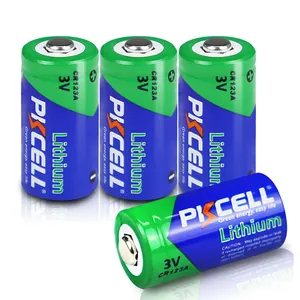



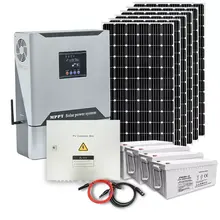
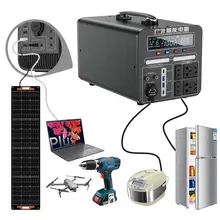
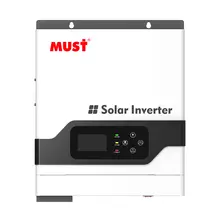

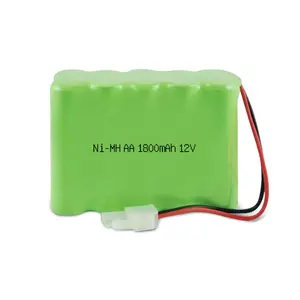

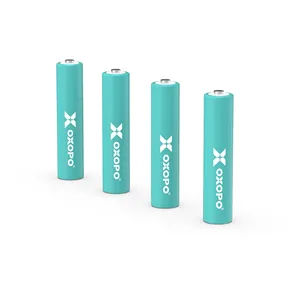
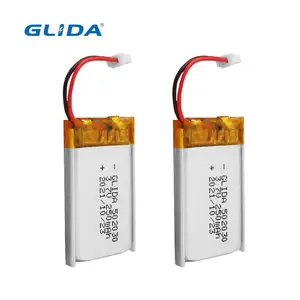
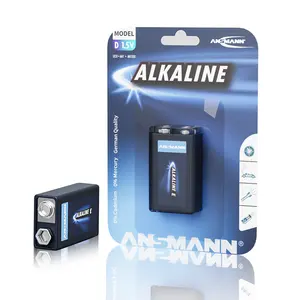

















 浙公网安备 33010002000092号
浙公网安备 33010002000092号 浙B2-20120091-4
浙B2-20120091-4